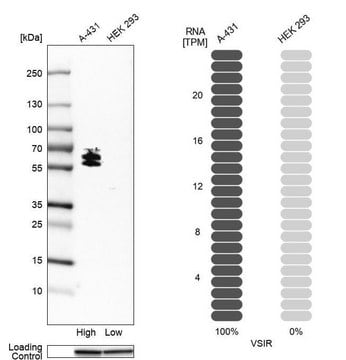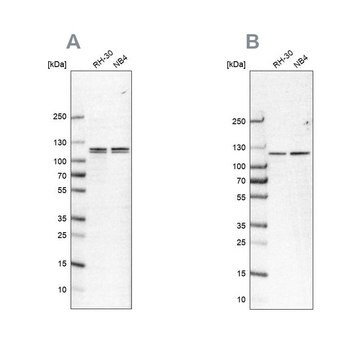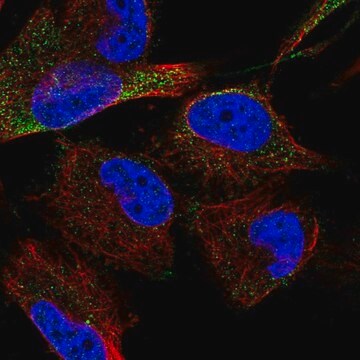MAB3291
Anti-H-Ras Antibody, clone 7D7.2
clone 7D7.2, Chemicon®, from mouse
Sinónimos:
Anti-C-BAS/HAS, Anti-C-H-RAS, Anti-C-HA-RAS1, Anti-CTLO, Anti-H-RASIDX, Anti-HAMSV, Anti-HRAS1, Anti-RASH1, Anti-p21ras
About This Item
Productos recomendados
biological source
mouse
Quality Level
antibody form
purified antibody
antibody product type
primary antibodies
clone
7D7.2, monoclonal
species reactivity
rat, mouse, human
manufacturer/tradename
Chemicon®
technique(s)
ELISA: suitable
western blot: suitable
isotype
IgG2b
NCBI accession no.
UniProt accession no.
shipped in
wet ice
target post-translational modification
unmodified
Gene Information
human ... HRAS(3265)
Specificity
Immunogen
Application
Signaling
MAP Kinases
ELISA
Optimal working dilutions must be determined by end user.
Physical form
Storage and Stability
WARNING: The monoclonal reagent solution contains 0.1% sodium azide as a preservative. Due to potential hazards arising from the build up of this material in pipes, spent reagent should be disposed of with liberal volumes of water.
Other Notes
Legal Information
Disclaimer
¿No encuentra el producto adecuado?
Pruebe nuestro Herramienta de selección de productos.
Storage Class
10 - Combustible liquids
wgk_germany
WGK 2
flash_point_f
Not applicable
flash_point_c
Not applicable
Certificados de análisis (COA)
Busque Certificados de análisis (COA) introduciendo el número de lote del producto. Los números de lote se encuentran en la etiqueta del producto después de las palabras «Lot» o «Batch»
¿Ya tiene este producto?
Encuentre la documentación para los productos que ha comprado recientemente en la Biblioteca de documentos.
Nuestro equipo de científicos tiene experiencia en todas las áreas de investigación: Ciencias de la vida, Ciencia de los materiales, Síntesis química, Cromatografía, Analítica y muchas otras.
Póngase en contacto con el Servicio técnico







